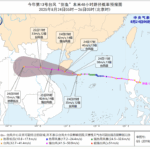News Report During this year’s National Day holiday, many citizens enjoyed sharing their travel experiences, food photos, and family gatherings on social media platforms like WeChat, Weibo, and Douyin after returning from trips. However, they often overlooked the privacy risks involved. According to public security authorities, citizens should exercise caution when posting eight types of content on social media: tickets, identification documents, bank cards, location information, unboxing videos, photos of elderly people and young children, others’ private information, and unverified information.
While traveling, many people habitually take pictures of train tickets, flight tickets, and boarding passes to share online. These documents contain personal information that criminals could exploit through illegal means to steal private data. Other identification documents such as ID cards, passports, driver’s licenses, and marriage certificates also contain important personal privacy information and should be shared cautiously. Displaying bank card numbers with sensitive information could lead to unauthorized use by criminals and financial losses. Additionally, it’s advisable to avoid sharing location information including check-ins, real-time locations, and photos with location data, as these can easily reveal actual home addresses.
Public security authorities also remind the public that unboxing videos might disclose names and phone numbers from shipping labels, providing opportunities for criminals. Photos and names of elderly people and children should be avoided to prevent criminals from using this information for illegal activities. If sharing is necessary, limit the audience. Posting others’ private information without permission may violate their privacy rights. When encountering unverified information, citizens should not readily believe or share it on social media but maintain rationality and caution to avoid becoming creators or spreaders of rumors.
Modern life makes us increasingly dependent on mobile phones. Important personal information stored on phones can easily lead to privacy leaks and financial losses if we’re not careful. Therefore, daily phone usage requires attention to detail. Authorities advise citizens to use caution when connecting to password-free Wi-Fi networks and public charging stations, as unencrypted information on phones could be stolen. When granting app permissions, carefully review notification content and disable permissions unnecessary for the software’s function. Additionally, cancel account authorizations for third-party platforms or websites that haven’t been used for extended periods.
WeChat
WeChat is a Chinese multi-purpose messaging, social media, and mobile payment app developed by Tencent. First released in 2011, it rapidly evolved from a simple messaging service into an all-encompassing “super-app” integral to daily life in China. Its features now include social networking, mobile payments, news, and mini-programs, making it a central hub for communication, commerce, and services.
Weibo
Weibo is a popular Chinese microblogging website and social media platform, often described as a hybrid of Twitter and Facebook. It was launched by Sina Corporation in 2009 and quickly became one of the most influential platforms for public discourse, news dissemination, and celebrity-fan interaction in China. While not a historical site, its history is marked by rapid growth and its significant role in shaping modern Chinese digital culture and online communication.
Douyin
Douyin is a Chinese short-form video platform launched in 2016 by ByteDance, which later inspired the global version TikTok. It quickly gained popularity for its user-generated content, featuring music, dance, comedy, and lifestyle videos. The app has become a significant part of modern Chinese digital culture, influencing entertainment, social trends, and e-commerce through features like live streaming and integrated shopping.
train tickets
Train tickets are travel documents that grant passengers the right to board and ride on trains. Historically, they evolved from simple paper slips in the early 19th century to the complex, barcoded, and often digital tickets used today. This evolution reflects advancements in printing, computing, and the management of railway systems.
flight tickets
“Flight tickets” are not a physical place or cultural site, but rather a document or record that grants a passenger the right to board an aircraft. Historically, they evolved from simple paper coupons in the early 20th century to the electronic e-tickets that are standard today. This transition has revolutionized travel by making the booking and boarding process vastly more efficient and accessible.
boarding passes
A boarding pass is a travel document issued by an airline during check-in, granting a passenger permission to board an aircraft for a particular flight. Historically, they evolved from simple paper cards to the digital, barcoded or QR-coded tickets used today, which streamline the security and boarding process.
ID cards
ID cards are official government-issued documents used to verify a person’s identity and key details such as their name, age, and nationality. Their history dates back to the 19th century, with France introducing one of the first modern systems in the early 1920s, and they have since become a nearly universal tool for population management, security, and access to services.
passports
A passport is an official government-issued document that certifies a holder’s identity and nationality, primarily for the purpose of international travel. The concept dates back to at least the 15th century, but modern passports with standardized booklets became widespread after World War I. Today, they serve as a crucial tool for border control, security, and verifying a person’s right to consular assistance abroad.


